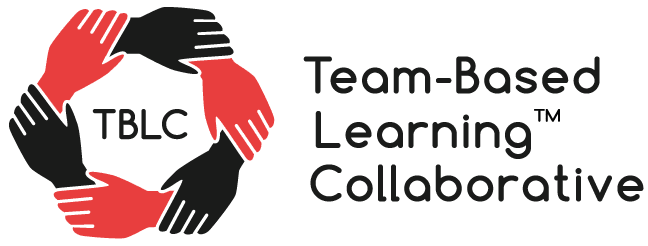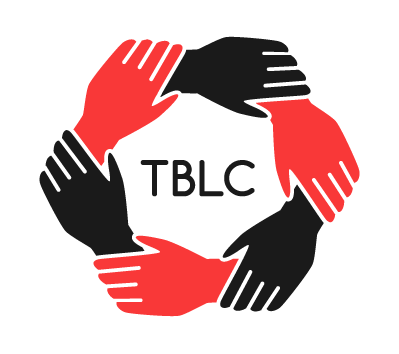Dear Colleagues,
There is limited space remaining for the TBL 101 and Creating an Effective TBL Module workshops, which will be offered at the 19th Annual IAMSE (International Association of Medical Science Educators) Meeting this summer on Saturday, June 13th, 2015 from 8:30 am to 3:15 pm Eastern Time. These workshops will be co-presented by Sandy Cook and Kevin Krane. These workshops can be registered for independently of the normal conference registration. For more information, please visit http://www.iamseconference.org.
In case you can’t make it, the TBLC is hosting a regional workshop on Saturday, October 10th, 2015 in Seattle at the Hilton Hotel. The workshops will be co-presented by Michele Clark and Chris Burns. Registration will be open by June 1st, 2015. More details to follow soon!
Thank you,
TBLC Admin Team
Wednesday, May 13, 2015
Thursday, May 7, 2015
"Giving faculty feedback about TBL modules to ensure delivery quality"
At the University of Illinois College of Medicine at Chicago, we first introduced Team-based learning (TBL) into the preclinical curriculum in academic year 2011-2012. We started with two modules generously provided by Wright State University Boonshoft School of Medicine. As course directors and faculty became more familiar with and willing to try TBL, the number of modules delivered markedly increased to 22 in academic year 2013-14. Some modules were homegrown, and others, adapted from existing modules. As novice practitioners of TBL, the quality of our modules was variable, so we developed a process for providing feedback to faculty about module quality.
Method: In AY2013-14, all TBL modules in the preclinical curriculum were submitted for peer review to two individuals at least three weeks prior to the scheduled TBL date. Reviewers provided narrative feedback using track changes about: quality of learning objectives, readiness assurance test (RAT) questions, and application exercises; nature of the preparatory material; and alignment of all components with one another. Reviewers had one week to complete their review, giving faculty one week to respond and make changes, so the module could be finalized for printing one week prior to the scheduled date.
Lessons learned:
When starting TBL in your program, one should have a process for providing feedback to faculty about module quality. A skilled facilitator cannot make up for a poorly constructed module. The feedback process provides a means for faculty development not only in TBL construction, but also for writing learning objectives and multiple-choice items, and constructing independent learning assignments.
It takes a team of people to complete the task of providing feedback because the workload is significant. It took us an average of 6-10 hours to complete one review, so having two individuals each reviewing 22 modules was not sustainable.
Hold faculty accountable for review submission deadlines or consider a longer time frame to review. When faculty were told to submit three weeks prior to the scheduled TBL date, they actually submitted their modules 1-2 weeks in advance, which was insufficient time for an adequate review.
Having the entire module in one document with explanatory notes is helpful for reviewers. We developed a template for faculty to fill in that includes a lesson plan, advance assignment, learning objectives, RAT, and application exercises. In addition, we provide spaces for faculty to indicate the linked learning objective(s) and explain key concepts for each RAT question and application exercise.
Future directions: We continue to modify our process for providing feedback on module quality, and are currently working with the Educational Development Committee (EDC) and other members of the TBLC to develop a rubric for assessing module quality. Another major pitfall in TBL implementation is poor facilitation. We are developing a process for providing feedback to faculty on facilitation of the session, which also involves working with the EDC and other TBLC members to develop a rubric for facilitation.
Amy Lin, MD
Abbas Hyderi, MD, MPH
Janet Riddle, MD
Method: In AY2013-14, all TBL modules in the preclinical curriculum were submitted for peer review to two individuals at least three weeks prior to the scheduled TBL date. Reviewers provided narrative feedback using track changes about: quality of learning objectives, readiness assurance test (RAT) questions, and application exercises; nature of the preparatory material; and alignment of all components with one another. Reviewers had one week to complete their review, giving faculty one week to respond and make changes, so the module could be finalized for printing one week prior to the scheduled date.
Lessons learned:
When starting TBL in your program, one should have a process for providing feedback to faculty about module quality. A skilled facilitator cannot make up for a poorly constructed module. The feedback process provides a means for faculty development not only in TBL construction, but also for writing learning objectives and multiple-choice items, and constructing independent learning assignments.
It takes a team of people to complete the task of providing feedback because the workload is significant. It took us an average of 6-10 hours to complete one review, so having two individuals each reviewing 22 modules was not sustainable.
Hold faculty accountable for review submission deadlines or consider a longer time frame to review. When faculty were told to submit three weeks prior to the scheduled TBL date, they actually submitted their modules 1-2 weeks in advance, which was insufficient time for an adequate review.
Having the entire module in one document with explanatory notes is helpful for reviewers. We developed a template for faculty to fill in that includes a lesson plan, advance assignment, learning objectives, RAT, and application exercises. In addition, we provide spaces for faculty to indicate the linked learning objective(s) and explain key concepts for each RAT question and application exercise.
Future directions: We continue to modify our process for providing feedback on module quality, and are currently working with the Educational Development Committee (EDC) and other members of the TBLC to develop a rubric for assessing module quality. Another major pitfall in TBL implementation is poor facilitation. We are developing a process for providing feedback to faculty on facilitation of the session, which also involves working with the EDC and other TBLC members to develop a rubric for facilitation.
Amy Lin, MD
Abbas Hyderi, MD, MPH
Janet Riddle, MD
Subscribe to:
Posts (Atom)




